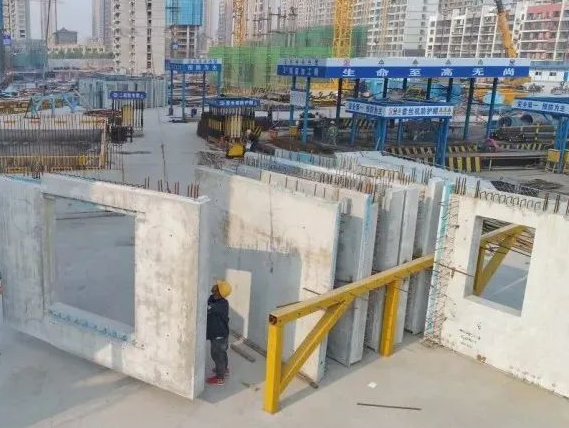Accelerate the development of prefabricated buildings! The General Office of the State Council forwarded the “Plan to Accelerate Energy
Notice of the General Office of the State Council on Forwarding the Work Plan for Accelerating Energy Conservation and Carbon Reduction in the Construction Sector by the National Development and Reform Commission and the Ministry of Housing and Urban Rural Development.
To the people’s governments of various provinces, autonomous regions, and municipalities directly under the Central Government, as well as to the ministries and commissions of the State Council and directly affiliated institutions:.
The National Development and Reform Commission and the Ministry of Housing and Urban Rural Development have approved the “Accelerating the Promotion of Energy Conservation and Carbon Reduction in the Construction Sector” work plan by the State Council, and it is now forwarded to you for careful implementation..
The construction sector is one of the main areas of energy consumption and carbon emissions in China. Accelerating the promotion of energy conservation and carbon reduction in the construction industry is of great significance for achieving carbon peak and carbon neutrality, and promoting high-quality development. In order to implement the decisions and deployments of the Party Central Committee and the State Council, promote the comprehensive green transformation of economic and social development, and accelerate the promotion of energy conservation and carbon reduction in the construction industry, this plan is formulated..
Reduce carbon emissions, accelerate the improvement of green and low-carbon development quality in the construction industry, and continuously meet the needs of the people for a better life..
By 2025, the energy-saving and carbon reduction system in the construction industry will be more sound, and green building standards will be fully implemented for new urban buildings. The area of newly built ultra-low energy and near zero energy buildings will increase by more than 20 million square meters compared to 2023, and the energy-saving renovation area of existing buildings will increase by more than 200 million square meters compared to 2023. The proportion of electricity consumption in building energy consumption will exceed 55%, and the renewable energy substitution rate for urban buildings will reach 8%, Positive progress has been made in energy conservation and carbon reduction in the construction industry..
By 2027, ultra-low energy buildings will achieve large-scale development, and energy-saving renovations of existing buildings will be further promoted. The energy consumption structure of buildings will be further optimized, and a batch of green, low-carbon, and high-quality buildings will be built. Significant achievements will be made in energy conservation and carbon reduction in the construction field..
(1) Improve the energy efficiency and carbon reduction level of new urban buildings. Optimize the energy-saving and carbon reducing design of new buildings, fully utilize natural lighting and ventilation, adopt efficient, energy-saving and low-carbon equipment, improve the insulation and fire resistance performance of building envelope structures, and promote the configuration of energy management systems in public buildings and qualified residential buildings. Vigorously promote ultra-low energy buildings, encourage government invested public welfare buildings to be built according to ultra-low energy building standards, and accelerate the large-scale development of ultra-low energy buildings in areas with conditions such as the Beijing Tianjin Hebei region and the Yangtze River Delta. Increase the proportion of star rated green buildings in new construction. Strictly implement the responsibilities of all parties involved in engineering construction, focus on the review of construction drawings and the acceptance of engineering projects, strengthen the energy-saving review of building projects with an annual operating energy consumption of 1000 tons of standard coal (or electricity consumption of 5 million kilowatt hours) or above, and strictly implement mandatory standards for building energy conservation and carbon reduction..
(2) Promote the renovation and upgrading of existing urban buildings. Organize and implement energy efficiency diagnosis, comprehensively conduct a survey of existing urban buildings, and establish a database and project reserve for energy-saving and carbon reducing renovation of urban buildings. Develop annual renovation plans for existing buildings on a city by city basis and determine them reasonably.
